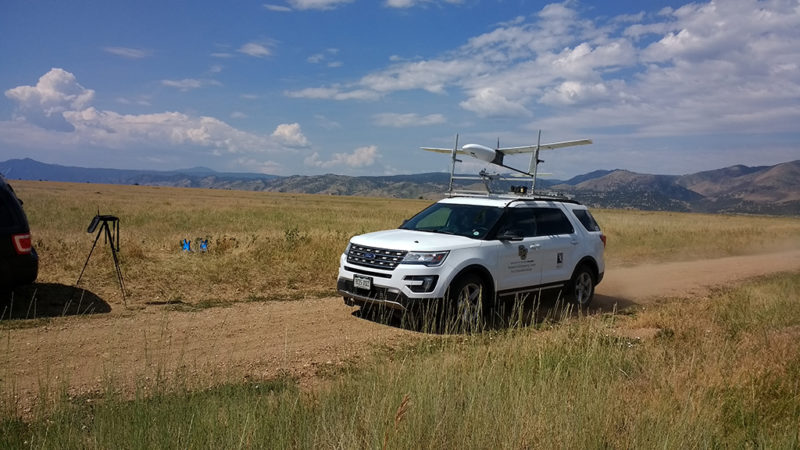Latest News

A Black Swift S2 UAS mounted atop a car. Photo: Black Swift Technologies.
Black Swift Technologies announced the expansion of a pathfinder mission with NASA’s Goddard Space Flight Center to develop enhanced multi-angular remote sensing techniques using small Unmanned Aircraft Systems (UAS). According to Black Swift Technologies, these autonomous platforms can more effectively and efficiently monitor crop health and growth monitoring through the use of a narrow spectral band (centered at 531 nm) used to derive vegetation photosynthesis related indices by tracking seasonally changing pigment ratios and photosynthetic rates not capable with established greenness indices, including the Normalized Difference Vegetation Index (NDVI).
The pathfinder mission, called Multi AngLe Imaging Bidirectional Reflectance Distribution Function Small-UAS (MALIBU), uses Black Swift’s most advanced small UAS, the Black Swift S2, to capture multi-angle reflectance measurements for land surface studies using multispectral imagers, oriented at different viewing angles. MALIBU’s primary subsystem — a multi-angular sensor array based on the Tetracam Mini-Multiple Camera Array’s (MCA) imaging system — generates science-quality reference data sets suitable for calibration and validation activities supporting NASA’s flagship Earth science missions.
For nearly 30 years, NASA has been using satellite remote sensors to measure and map the density of vegetation over the Earth. Using the National Oceanic and Atmospheric Administration’s (NOAA) Advanced Very High Resolution Radiometer (AVHRR), scientists have been collecting images of our planet’s surface.
“By enabling increased understanding of surface directional reflectance variability at sub-pixel resolution, MALIBU will allow NASA missions to assess and improve the retrieval of reflectance-based biogeophysical properties,” NASA stated.
MALIBU will also provide users with highly accurate imagery of crop status, plant vigor, growth monitoring, pest and disease detection — essential knowledge and data for evaluating crop development, yield maximization, and production efficiency.
“The goal of MALIBU is to capture timely and accurate in-situ data at a fraction of the cost of traditional NASA airborne science platforms,” says Jack Elston, Chief Executive Officer (CEO) of Black Swift Technologies. “By measuring land biophysical parameters from a cost-effective, repeatable small UAS platform, MALIBU complements NASA’s satellite observations while significantly reducing the logistical and technical complexities of manned aircraft operations in remote geographical regions.”
Get the latest Via Satellite news!
Subscribe Now